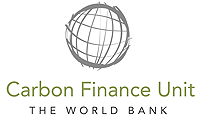Overview
The A/R Clean Development Mechanism (CDM) project activity “Ibi Batéké Degraded Savannah Afforestation for Fuelwood Production has been implemented on the Batéké plateau in the Democratic Republic of Congo (DRC). The Batéké plateau is comprised of 90% grassland and shrubby savannah subject to repeated annual burning and 10 % forest gallery subject to progressive degradation and deforestation for subsistence farming (maize, cassava) and charcoal production.
The specific objectives of the project were:
- Sequester CO2 through fast growing forest plantations on savannah grassland with occasional scattered shrubs (please refer to section A5 for a detailed technical description of plantation establishment);
- Supply the capital city of Kinshasa (8-10 million inhabitants) with charcoal through sustainable fuelwood production;
- Reduce soil erosion and water loss through runoff;
- Reduce degradation and deforestation of remaining forest galleries;
- Alleviate poverty through the introduction of long-term income enhancement mechanisms for local communities.
To achieve these objectives, the A/R Clean Development Mechanism (CDM) project activity established various types of forest plantation based on the four following silvicultural models:
- Plots to be harvested: Acacia sp., Eucalyptus sp. and Pinus sp. intercropped with cassava (3,106.33 ha);
- Plots not to be harvested: mixture of local and exotic species intercropped with cassava (465.60 ha);
- Plots not to be harvested: various local and exotic species (421.80 ha);
- Enhancement of natural regeneration through fire control (232.80 ha).
Those exotic species selected for the project have already been tried and tested in plantations over the last 20 years or so, around the project zone, or in similar ecological areas. Within the plots of Acacia sp., Eucalyptus sp, Pinus sp. and other local and exotic species, cassava has been intercropped between rows in order to provide a short-term cash-flow for project implementation and assist natural weed control.
Benefits
The social impacts of the project include the enhancing of local employment opportunities:
- 55-60 permanent forest management staff (30 of which were executive positions);
- Up to 400 temporary positions 4-6 months a year, equivalent to 210-225 fulltime posts;
- Approximately 30 charcoal makers.
Environmental impacts include:
- Reduction of degradation/deforestation of remaining forest galleries thanks to new
- income generating opportunities for local communities and the alternative supply of biomass for charcoal production;
- Reduction of bushfires and their associated negative impacts on soils and ecosystems;
- In the long-term the plantations will also provide shelter for wildlife.
